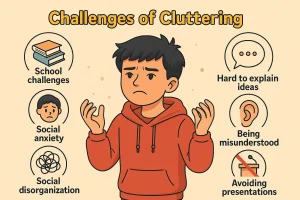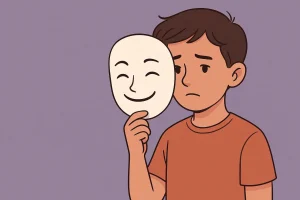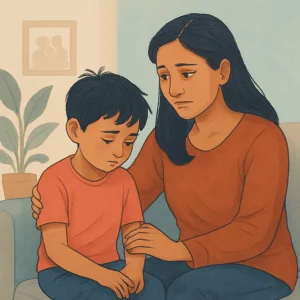How to Teach WH Questions to Kids: A Guide for Parents
By Rajini D
Last Updated: February 6, 2025
Welcome to our step-by-step guide on teaching WH questions to kids, a key component in fostering early language skills and cognitive development. Mastering “Who, What, Where, When, Why, and How” empowers children to explore their world through language, enhancing both understanding and curiosity. This guide will equip you with simple, effective strategies to introduce these foundational questions, making learning both engaging and fun. Let’s begin this exciting journey to boost your child’s communication skills!
What Are WH Questions?
WH questions are the building blocks of effective communication and play a crucial role in language development. These questions help children gather information, satisfy their curiosity, and engage with others. Let’s break down each type of WH question with definitions and examples to help you confidently teach these concepts to your child.
- Who: This question asks about a person. For instance, “Who is your teacher?” helps a child identify or describe individuals involved in a situation.
- What: Used to inquire about objects, actions, or ideas. Asking, “What are you drawing?” encourages children to explain more about their activities or thoughts.
- Where: This question seeks information about place or location. “Where is your school?” helps children discuss locations and their understanding of environments.
- When: When questions are all about time, helping kids grasp the concept of past, present, and future. For example, “When is your birthday?” requires a response related to time.
- Why: Possibly the most insightful, why questions probe for reasons behind actions or situations. “Why do we eat breakfast?” helps children think about causes and effects.
Also Read: WH Questions Examples for Kids: How to Teach with Fun Activities
Preparing to Teach WH Questions
Setting up for success in teaching WH questions to your child involves a little preparation. Here’s how you can gather the right tools and create an environment that enhances learning.
Essential Tools and Materials To effectively teach WH questions, you’ll need a few key resources:
- Flashcards: Visual aids with words and pictures can help illustrate the concepts of who, what, where, when, and why.
- Children’s Books: Select books rich in narrative to encourage questions and answers.
- Visual Charts: Charts that list different WH questions and provide space for answers can be interactive tools for kids.
- Apps and Digital Resources: Educational apps designed for language development can be highly effective, especially those that encourage interactive learning.
Tips for Creating a Conducive Learning Environment The right environment can significantly enhance your child’s learning experience. Consider these tips:
- Quiet Space: Choose a quiet corner of your home free from distractions where your child can focus on learning.
- Comfortable Seating: Ensure the seating arrangement is comfortable. A child-friendly desk or a cozy nook can make a big difference.
- Organized Materials: Keep all learning materials organized and within easy reach to maintain a flow during lessons.
- Positive Reinforcement: Create a positive learning atmosphere by using praise and rewards to motivate your child.
Step-by-Step Guide to Teaching WH Questions
Teaching WH questions to your child can be a fun and rewarding experience that enhances their language skills and overall cognitive development. Here’s how you can effectively introduce and practice WH questions in a way that’s both engaging and educational.
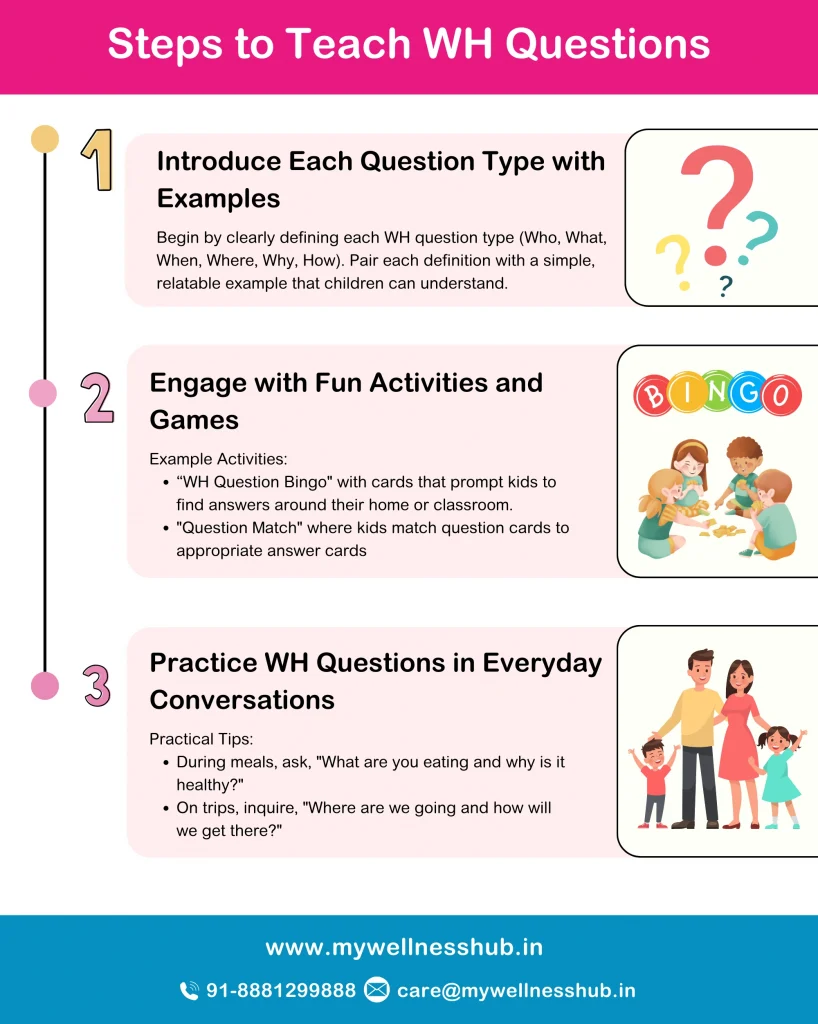
Introducing WH Questions
Start by familiarizing your child with the basics of WH questions. Here are some strategies:
- Simple Explanations: Begin with clear, concise explanations of what WH questions are and why they are used.
- Use Everyday Examples: Point out everyday instances where WH questions are used. For example, during a meal, you could ask, “What are you eating?” or “Why do you like it?”
- Role-playing: Create small scenarios where you and your child can ask each other WH questions. This playful interaction encourages understanding and practice.
Fun and Engaging Activities
To reinforce learning, incorporate activities that make practicing WH questions enjoyable:
- Question and Answer Games: Games like ’20 Questions’ where one person thinks of an object and others ask up to 20 WH questions to guess it can be very engaging.
- Storytime Queries: After reading a story, ask your child WH questions about the plot and characters. Encourage them to ask questions about the story too.
- WH Question Treasure Hunt: Set up a treasure hunt where each clue involves answering a WH question to find the next clue.
Everyday Practice
Incorporating WH questions into daily interactions is crucial for mastery. Here are some tips:
- Mealtime Conversations: Use meal times to ask questions about the day or the food. For example, “Where did this apple come from?” or “When did you last eat carrots?”
- Outdoor Observations: When outside, ask questions about the environment, like “Why is the sky blue?” or “What makes the leaves fall?”
- Reflective Evenings: End the day by discussing what happened, asking questions like “What was your favorite part of today?” or “How did that make you feel?”
Also read: Why WH Questions Matter for Kids and How to Teach Them
WH Questions and Examples for Kids
| WH Question | Purpose | Example Questions | How to Teach It |
|---|---|---|---|
| Who | Asks about a person | “Who is your best friend?” “Who helps you at school?” | Use family pictures, story characters, or real-life examples to explain people’s roles. |
| What | Asks about things, actions, or ideas | “What is your favorite toy?” “What are you doing?” | Use toys, objects, and daily activities to help kids answer. |
| Where | Asks about places or locations | “Where do you live?” “Where is your book?” | Play location-based games like scavenger hunts to reinforce learning. |
| When | Asks about time | “When do you go to bed?” “When is your birthday?” | Use daily routines and calendars to help kids understand time-related concepts. |
| Why | Asks about reasons or causes | “Why do we eat healthy food?” “Why is the sky blue?” | Encourage curiosity and reasoning by explaining the cause-effect relationship. |
Assessing Progress and Adjustments
As your child learns WH questions, it’s important to regularly assess their progress and make necessary adjustments to your teaching approach. This not only ensures they are on the right track but also keeps the learning process enjoyable and effective. Here are some methods you can use to track progress and fine-tune your teaching strategies:
Tracking Progress
- Observation Logs: Keep a daily or weekly log of your child’s use of WH questions during conversations. Note the types of questions they use comfortably and those they avoid or struggle with.
- Interactive Quizzes: Periodically, set up simple quizzes that ask your child to match questions with appropriate answers or scenarios. This can be a fun way to review what they’ve learned.
- Feedback Sessions: Have regular feedback sessions with your child. Ask them what they enjoy about learning WH questions and what they find challenging.
Making Adjustments
- Adapt Teaching Methods: If you notice that certain explanations or activities aren’t working well, try different approaches. For instance, if visual aids seem to engage your child more, incorporate more pictures or videos into your lessons.
- Increase or Decrease Complexity: Depending on your child’s comfort level, adjust the difficulty of the questions. Start with more straightforward questions and gradually introduce more complex ones as they improve.
- Encourage More Practice in Specific Areas: If your child excels at ‘who’ questions but struggles with ‘why’ questions, create more activities focused on the ‘why’ to build their confidence and understanding.
Advanced Techniques for Mastery
Once your child has a good grasp of basic WH questions, it’s exciting to introduce more advanced techniques that challenge their understanding and encourage deeper thinking. Here are some effective strategies for children ready to advance their questioning skills:
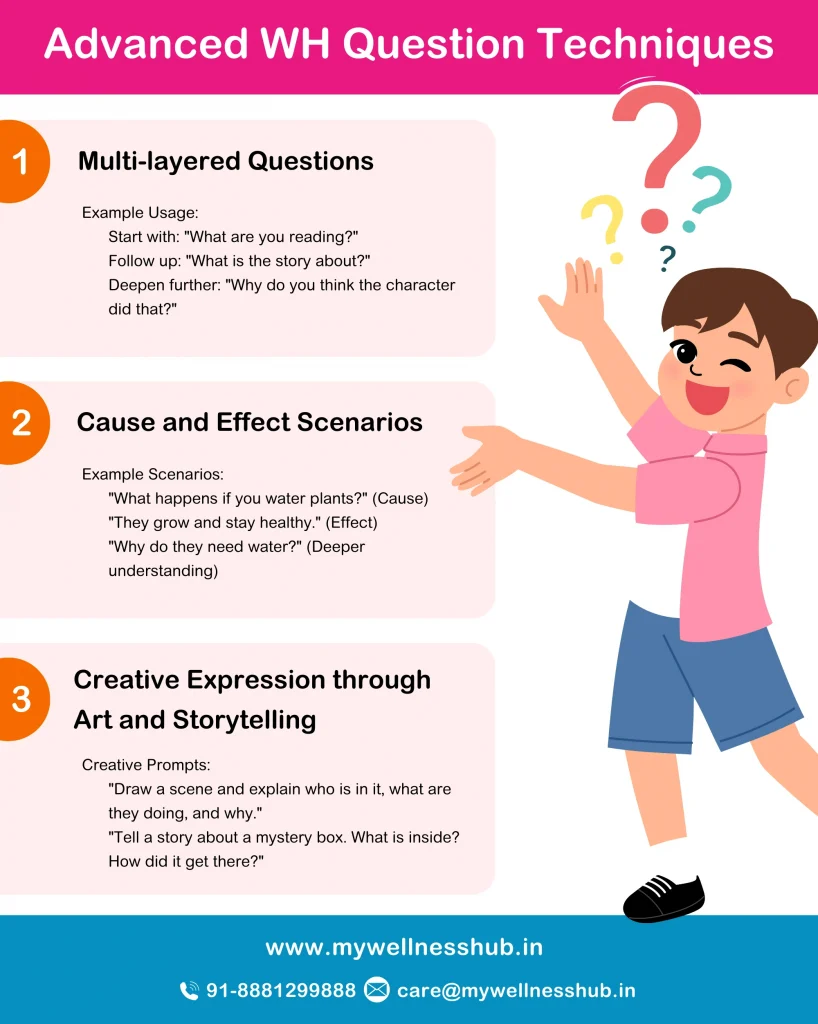
Expanding Question Complexity
- Multi-layered Questions: Begin to introduce questions that require more complex, layered answers. For example, instead of just asking, “What are you eating?” you could ask, “What are you eating and why do you think it’s healthy?”
- Cause and Effect Questions: Encourage your child to think about consequences by asking questions like, “What do you think would happen if we didn’t water the plants?”
Encouraging Critical Thinking
- Problem-Solving Scenarios: Create scenarios where your child needs to use WH questions to resolve a situation. For example, if a toy is missing, ask, “Where did you last see it?” or “Who else was playing with it?”
- Open-Ended Questions: Ask questions that do not have one right answer, such as, “Why do you think people have different favorite colors?”
Utilizing Technology
- Interactive Learning Apps: Use apps that simulate scenarios or stories where children need to ask and answer WH questions to progress. These can be particularly engaging for tech-savvy kids.
- Video Reflections: Watch age-appropriate documentaries or shows together, and then use WH questions to discuss the content. For example, “What did the character learn at the end?” or “Why did the story end that way?”
Creative Expression
- Art-Based Questions: Use art projects to ask questions about the process and outcome. Questions like, “What materials did you use to make this?” and “How does your artwork express your feelings today?” can link emotional intelligence with language skills.
- Story Creation: Encourage your child to create their own stories or scenarios, using WH questions to develop the plot and characters. This not only improves their ability to formulate questions but also enhances their creative storytelling skills.
Conclusion
Well done on boosting your child’s communication skills with WH questions! This journey helps them understand and engage with the world around them. Keep the curiosity alive by exploring new questions every day. Don’t forget, Wellness Hub is here to support you with plenty of resources and fun learning tools. Check out our interactive activities to keep your teaching sessions fresh and exciting. Thanks for choosing us as part of your child’s learning adventure. Here’s to more questions and amazing discoveries together!
Frequently Asked Questions:
1. What are WH questions for kids?
WH questions are the basic types of questions that include Who, What, When, Where, Why, and How. These questions are crucial for children as they help them learn to gather information, understand their environment, and communicate effectively. Teaching your child these questions can significantly enhance their cognitive and language development.
2. Why is it important to teach WH questions early?
Introducing WH questions early in a child’s development is vital because it lays the foundation for effective communication and critical thinking. These skills are essential not only for academic success but also for personal growth and social interaction.
3. How can I start teaching WH questions to my preschooler?
Begin by incorporating WH questions naturally into daily conversations. For example, during mealtime or while reading a book, you can ask questions like, “What are you eating?” or “Who is in the story?” This helps children learn through context, making it easier for them to grasp the concept of each question type.
4. What are some fun activities to teach WH questions?
Engage your child with activities such as:
- 20 Questions Game: Think of an object and have your child ask up to 20 questions to guess it.
- Storytime Quizzes: After reading a book, ask questions about the plot and characters, and encourage your child to do the same.
- WH Question Treasure Hunt: Hide objects around the house and write clues that involve answering a WH question to find the next object.
5. How do I know if my child is progressing with WH questions?
Monitor their use of WH questions in everyday conversations. Note whether they start using these questions spontaneously and appropriately. Also, observe if they can answer similar questions from others, showing a good understanding of the concept.
6. Can technology help in teaching WH questions to children?
Yes, various educational apps and digital games are designed to reinforce the use of WH questions through interactive storytelling and problem-solving activities. These tools make learning engaging and accessible, helping children practice these skills in a fun, digital format.
7. What should I do if my child struggles with WH questions?
If your child finds it challenging to understand or use WH questions, consider breaking down the questions into more manageable parts. Use visual aids like flashcards or diagrams to explain the concepts. Consistent practice and positive reinforcement can also help build their confidence and skill.
8. Are there any specific books to help teach WH questions?
Look for children’s books that are rich in detailed narratives and diverse characters. Books that pose questions within the story or have a mystery element are particularly useful as they naturally encourage children to think about and formulate WH questions.
9. What advanced techniques can I use for a child who excels at WH questions?
For children who are proficient with basic WH questions, introduce more complex scenarios that require critical thinking. You can also use real-life situations to discuss abstract concepts, like feelings and predictions, which demand a deeper understanding and more sophisticated use of language.
10. Where can I find more resources to help with teaching WH questions?
Wellness Hub offers a wide range of educational tools and resources specifically designed to support language development in children. Visit our resource page to access interactive tools, detailed guides, and expert advice that can help you effectively teach WH questions to your child.
About the Author:
Rajini Darugupally
M.Sc., Speech-Language Pathologist (9+ years of experience)
Rajini is a passionate and dedicated Speech-Language Pathologist with over 9+ years of experience, specializing in both developmental speech and language disorders in children and rehabilitation in adults. Driven by a desire to empower each individual to find their voice, Rajini brings a wealth of experience and a warm, genuine approach to therapy. Currently, at Wellness Hub, she thrives in a team environment that values innovation, compassion, and achieving results for their clients.
Book your Free Consultation Today
Parent/Caregiver Info:
Client’s Details:
* Error Message




